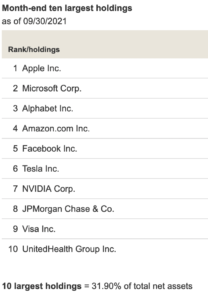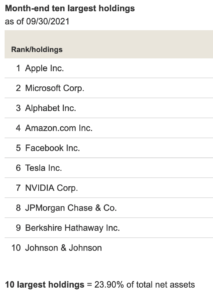Invest well; do good
Socially responsible investing is a great idea in theory but dubious in practice. I’ll explain why. But first, what is socially responsible investing?
It generally takes one of two forms:
- You exclude companies from your investment portfolio that trip your negative criteria.
- You include companies in your investment portfolio that meet your positive criteria.
There is no standard set of these selection criteria as they are based on your moral compass. Traditionally, they are related to political, environmental, social justice, and workplace rights issues. This socially responsible investing approach is also sometimes referred to as ESG — environmental, social, and governance.
What are some considerations when choosing ethically-informed investing?
1. Judging corporate behavior is tricky and things can quickly get muddled. For example, would a company be in or out of your portfolio if it:
- pays its employees high wages but builds military weapons?
- is philanthropically generous but makes us obese from marketing sugary drinks and salty snacks?
- produces life-saving miracle drugs but at unaffordable prices?
- lowers consumer prices but does so on the backs of its employees and local communities?
- connects the world with free social networking services but creepily promotes crazy conspiracy theories?
- builds privacy-protecting electronic gadgets but does so in third world sweatshops?
- sells affordable pillows, but its CEO actively supports racists and demagogues?
2. As companies’ strategy and leadership evolve, you will have to regularly re-assess the social responsibility status of your portfolio and that may mean frequent monitoring and trading of your investments.
3. Researching bonds and international stocks is more difficult and expensive.
4. With tight screening requirements, you may end up with a small investment universe and face less diversification, lower returns, higher risk, or all three.
5. With looser screening criteria, you may end up with a portfolio that looks nearly identical to a less costly index fund.
6. You may also incur additional fees to adopt this approach.
Lastly, there is no evidence that socially responsible investing has any effect on corporate behavior or social change. Here’s Vox’s take on what it calls The thorny truth about socially responsible investing.
Interestingly, I compared Vanguard’s flagship US Total Stock Market Index fund with their Social Index fund. What did I find? Here are the 10 largest holdings for the social index fund first and the regular index fund after it:


See much difference? Neither did I other than the Social Index fund is more concentrated in their largest holdings (32% versus 24%).
We should all want to make the world a better place but your investment portfolio may not be the most effective channel. Consider a different path to express your conscience and social preferences.
I suggest that you be a low-cost index fund investor, but a socially active citizen. You can expect slightly higher risk-adjusted returns due to the lower fees and broader investment universe. Then, support the organizations whose missions you value by donating directly to them and/or organize consumer boycotts against companies you oppose. You won’t miss the pillows and will have a greater impact and more cost-effectively advocate for the social change you desire.